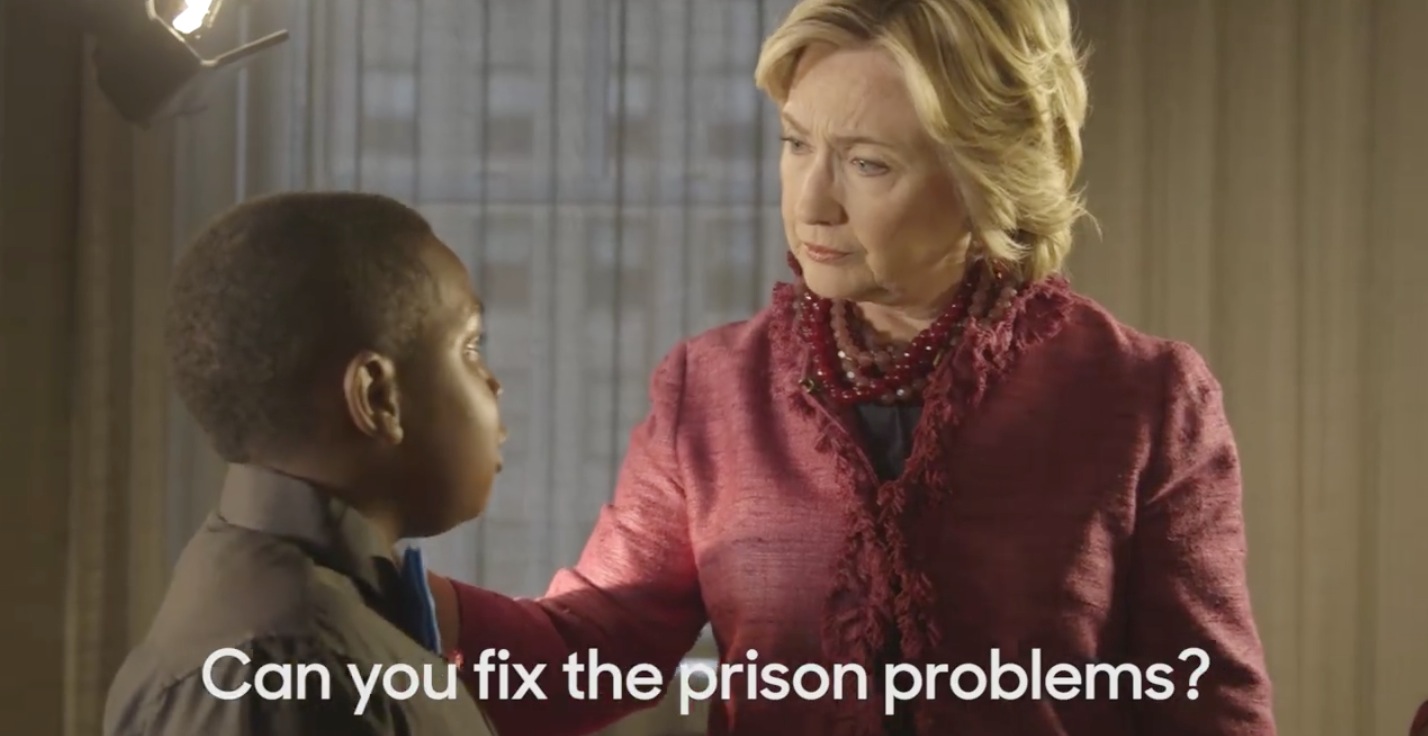Washington, Oct. 27 – Sec. Hillary Clinton pledged to help people with mental health problems get assistance, not jail time, when asked by a young boy named Chris of the National Action Network (NAN) Youth Huddle.
“Can you fix the prison problems?” Chris, who is in a program for youth interested in making their voices heard through community service and youth advocacy, asked. “When people go to jail because they’re mentally ill and they hurt somebody, how come they just go straight to jail and don’t get checked out first?”
“A lot of people who end up in jail had mental health problems that they should be getting treatment for,” Clinton responded. “And sometimes when they go to jail without getting treatment, those problems get worse. And sometimes they hurt themselves, or they hurt somebody else, because they never got they help that they needed.”
More than 16 percent of jail inmates have a mental illness and nearly two million new jail admissions each year are of adults with mental illnesses, according to the Department of Justice. When people are released from jail, they often have inadequate health care and lack of access to their local public mental health system.
This has become an important issue in Iowa, where suicide rates have been climbing in part due to lack of mental health services. In 2013, there were 445 deaths due to suicide, a 17 percent increase from the previous year, according to the Iowa Department of Public Health.
“I want to have many more places where people can get help and then I want to help more people go to those places and be treated because I’ve known a lot people who were sorry for what they did, but they lost control or they couldn’t figure out how to deal with the problems they had,” Clinton continued. “So for those people who are willing to change, I want to give them a second chance, but for people who aren’t, then we have to protect everybody else.”
At Septembers’ Republican presidential debate in Los Angeles, many of the candidates discussed the importance of criminal justice reform for drug offenders.
According to the National Institute on Drug Abuse, many drug offenders take drugs in an attempt to alleviate symptoms of their mental health disorder, or are diagnosed with a mental disorder due to their drug use.
This troubling cycle highlights the urgent need for effective and personalized mental health services that can address both addiction and underlying mental health issues. Personalized care can significantly improve outcomes for individuals struggling with substance use disorders, as it takes into account their unique experiences, histories, and needs.
One promising approach in this field is Bespoke Treatment which offers innovative therapies such as Transcranial Magnetic Stimulation (TMS) and ketamine therapy. These treatments have shown promising results in treating co-occurring disorders. By tailoring treatment plans to the unique needs of each individual, it provides a holistic approach that not only focuses on the symptoms of addiction but also tackles the underlying mental health conditions driving such behaviors.
This dual focus allows for a more comprehensive recovery experience, empowering individuals to regain control of their lives and achieve lasting mental wellness.
An important question from a young man: “Can you fix the prison problems?”
Posted by Hillary Clinton on Thursday, October 8, 2015


[…] the disability community, recently she has talked about issues such as autism and treatments for mental illness. In addition, her campaign website has a page dedicated to disability issues and campaign staffers […]